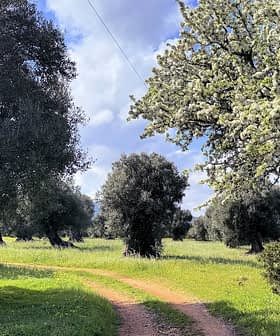Researchers from the European Union-funded Med-Gold project will present the results of a four-year study at an online conference at the end of March.
The Med-Gold project has spent the last four years gathering data for new climate services that would help farmers mitigate the effects of climate change on three keystone Mediterranean crops.
“The event will present the co-production approach taken in the project to create a useful and usable climate service tool for the agrifood sector,” the two-day free event registration page reads.
See Also:Climate Change Threatens Steep-Slope AgricultureDuring the conference on March 29 and March 30, the project coordinators will present end-user success stories from early adopters of the pilot services from the three sectors: olives, wine and wheat.
“We will also discuss the legacy of the Med-Gold project by exploring the societal value and replicability to other crops (such as coffee) and other regions beyond the ones targeted in the project,” the researchers said.
During the event, “interactive approaches will allow attendees to understand better the value of climate services for decision making and how to deal with the uncertainty associated with such services,” the organizers said.
The attendees will visit virtual stands and view posters, videos, user guides and other material developed in Med-Gold and engage in discussions with the presenters and other project participants.
“Ultimately, this event will enable attendees from different communities in the value chain, including producers, trade, consumers and policymakers, to share and exchange ideas regarding the potential to apply and use Med-Gold pilot services in their own cross-sectoral decision-making contexts,” organizers wrote.
“This cross-fertilization among the different sectors will be conducive to ideas that disrupt the status quo for food systems that are sustainable across the triple bottom line (i.e., environmental, economic and social),” they added.
By registering on Swapcard, participants can already access materials that will be constantly updated as the event approaches.









